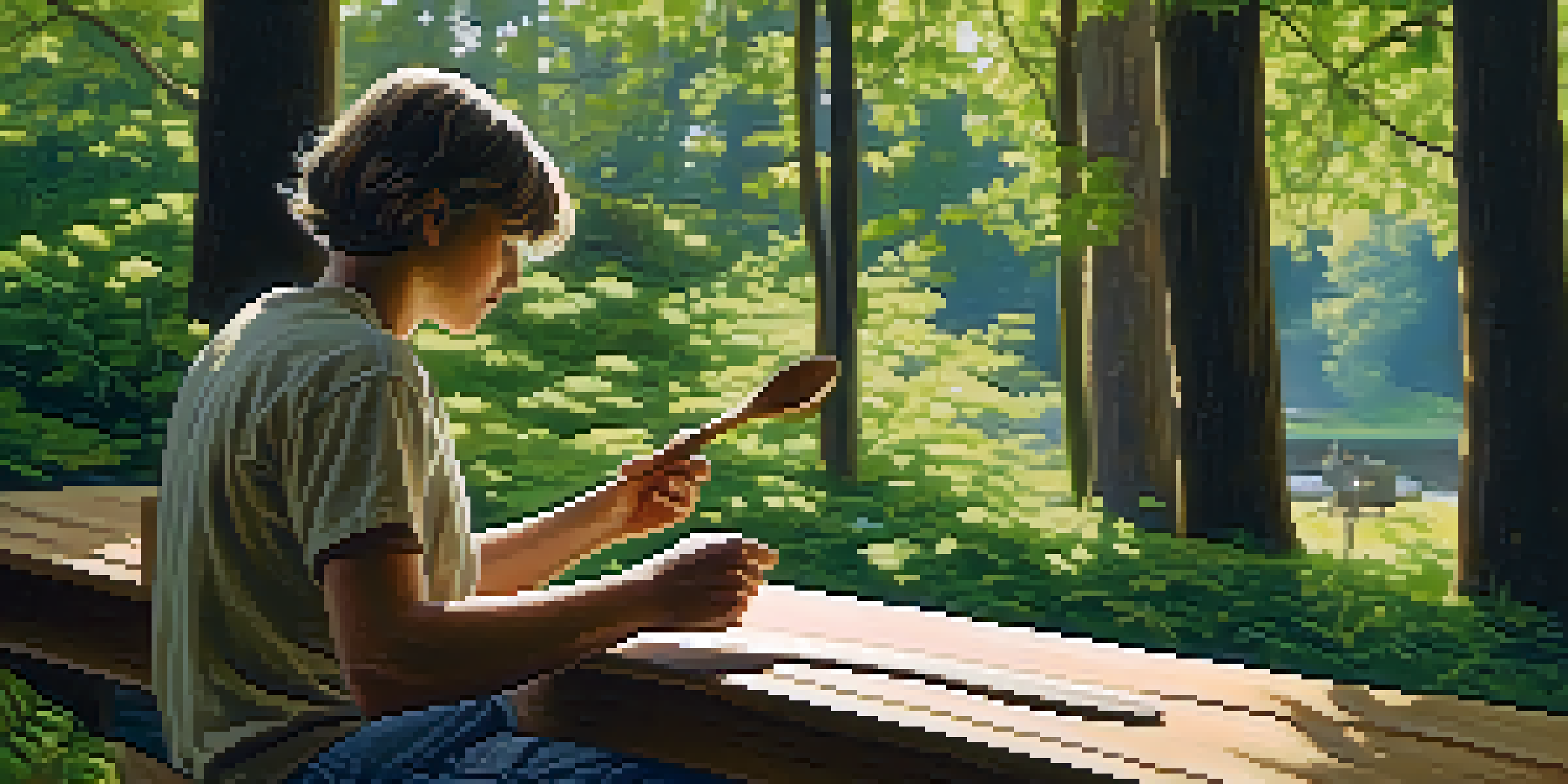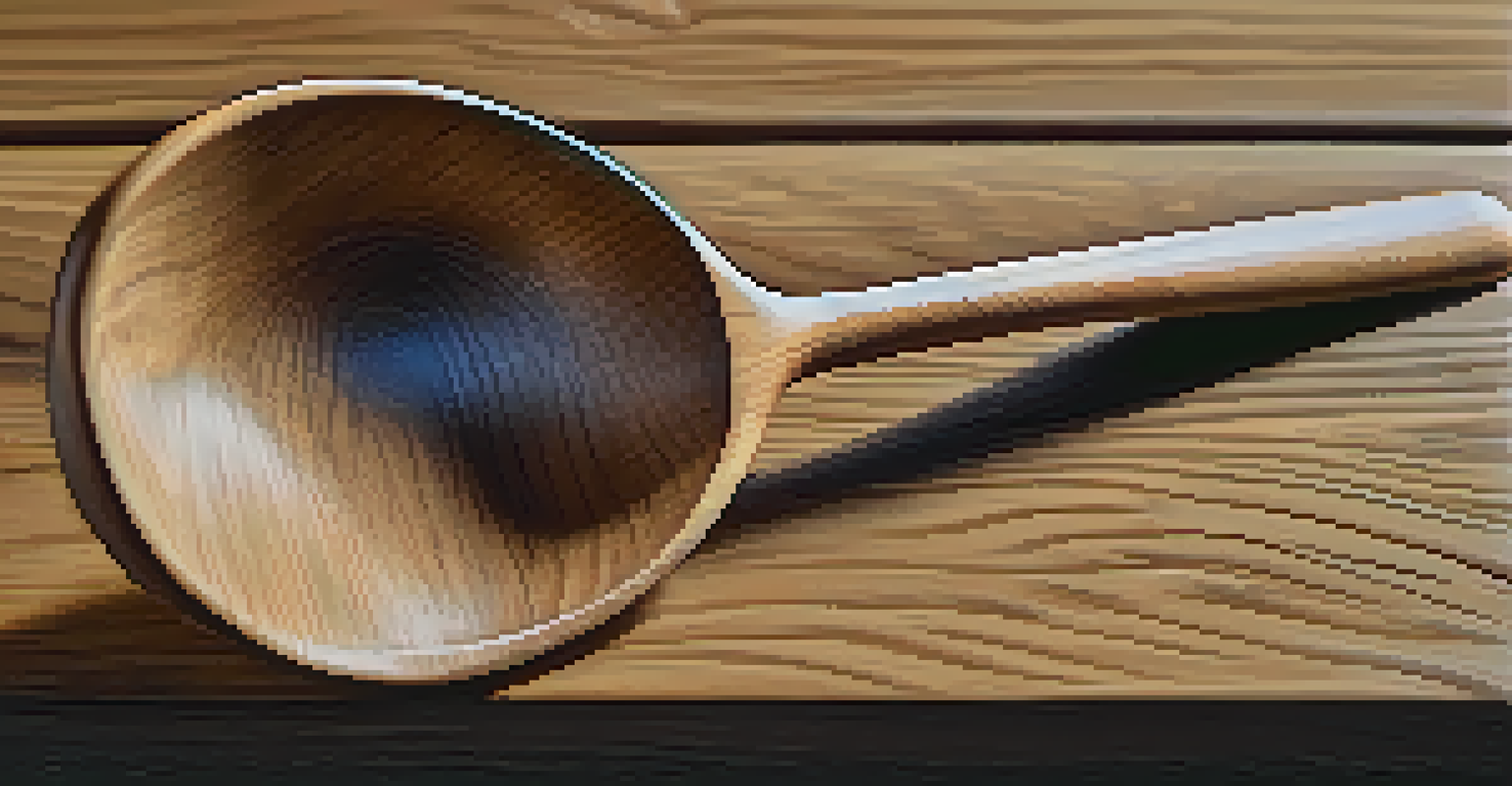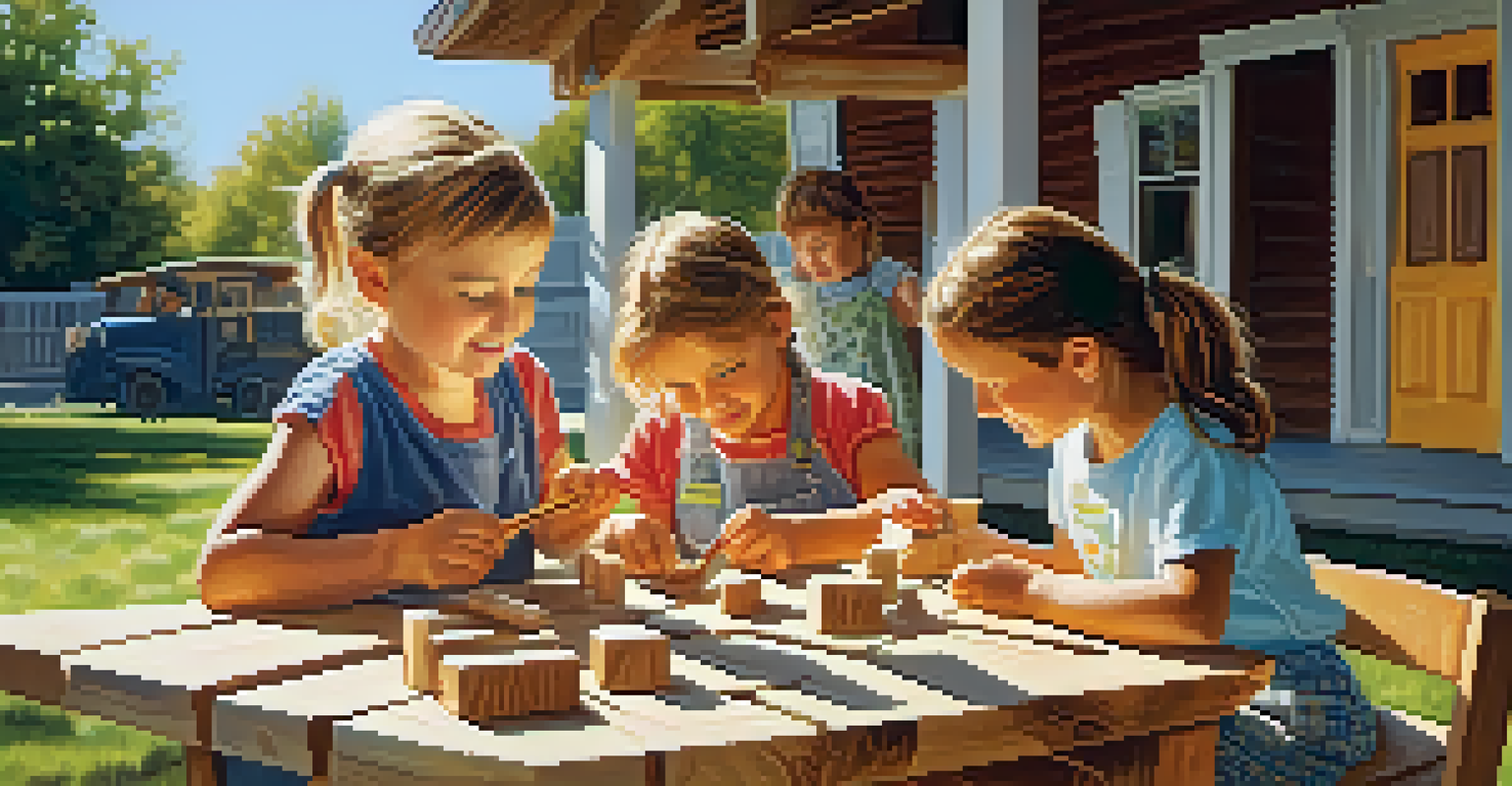Carving Projects for Beginners: Easy Ideas to Get Started

Getting Started: Essential Tools for Carving
Before diving into carving projects, it's crucial to gather the right tools. A basic carving kit usually includes a few essential items like whittling knives, chisels, and safety gear. Don't forget a sturdy work surface and a carving glove to protect your hands while you create.
Every artist was first an amateur.
Starting with quality tools can make a significant difference in your carving experience. You don’t need to invest heavily at first; many beginner kits are affordable and effective. As you progress, you can gradually upgrade your tools for more intricate projects.
Having the right tools not only enhances your skill but also boosts your confidence. With the basics in hand, you're ready to explore various carving projects that will help you practice and improve your technique.
Simple Wood Whittling: Nature’s Art
Wood whittling is one of the most accessible forms of carving, perfect for beginners. Start with a soft wood like basswood, which is easy to carve and shapes beautifully. Simple designs such as spoons or small animals can be a rewarding introduction.

As you whittle, focus on mastering basic techniques like slicing and chip carving. These skills will be the foundation for more advanced projects later on. Remember, it’s all about patience and practice; the more you carve, the better you’ll get.
Essential Tools for Carving Projects
Gathering quality carving tools, like whittling knives and chisels, sets the foundation for a rewarding carving experience.
Whittling outdoors can also enhance your experience, connecting you with nature as you work. So grab a piece of wood, find a comfy spot, and let your creativity flow!
Creating Decorative Wooden Spoons
Making decorative wooden spoons is a fantastic project that merges functionality with creativity. With just a block of wood and a few carving tools, you can create beautiful, personalized kitchenware. Start with a simple spoon shape, focusing on smooth lines and curves.
The only way to do great work is to love what you do.
This project allows you to experiment with different carving techniques, such as shaping the bowl and handle. As you gain confidence, you can add unique designs or embellishments to make each spoon truly one-of-a-kind. Plus, gifting a handmade spoon can make for a thoughtful present!
Remember to always sand your spoon after carving to ensure a smooth finish. This not only improves the aesthetic but also makes it safer to use in the kitchen.
Fun Projects: Carved Animal Figures
Carving animal figures can be a delightful way to practice your skills while creating something charming. Start with simple shapes like fish or birds, which can be achieved with basic carving techniques. As you become more comfortable, you can tackle more detailed figures.
This project encourages you to observe the forms and features of animals, enhancing your artistic eye. Using photographs or sketches as references can help guide your carving process and inspire creativity. Don't worry about perfection; each piece will have its own character!
Engaging Projects for Beginners
Simple projects like wood whittling and spoon carving provide great opportunities to practice and develop carving skills.
Sharing your carved animals with friends or displaying them at home can bring joy to your creations. Plus, it’s a great conversation starter and can spark interest in your newfound hobby.
Exploring Chip Carving Techniques
Chip carving is a decorative technique that involves removing small chips from the wood surface to create intricate designs. It's a fantastic way to add a personal touch to wooden items like boxes or plaques. By mastering a few basic patterns, you can elevate your projects significantly.
Start with simple geometric shapes and gradually incorporate more complex designs as you become comfortable. This method is especially satisfying because you can see immediate results from your efforts. Using a sharp knife and practicing on softwood will yield the best results.
As you develop your skills, consider personalizing gifts with chip carvings or creating decorative home pieces. The beauty of chip carving is that each design can be unique, reflecting your personality and style.
Carving Projects for Kids: Fun and Safe Ideas
Introducing kids to carving can be a fantastic way to spark their creativity while teaching them valuable skills. Simple projects like carving a small animal or a simple shape can be both fun and safe. Always supervise them and ensure they use kid-friendly tools designed for their age group.
Encouraging kids to express their ideas through carving can boost their confidence and fine motor skills. Plus, it’s an excellent opportunity for family bonding, as you can work on projects together. Remember to celebrate their efforts, regardless of the outcome!
Finishing Touches Matter
Sanding and applying a protective finish enhances the beauty and durability of your carvings, making them true works of art.
Safety is paramount, so ensure they understand the importance of using tools correctly and wearing protective gear. With the right guidance, kids can enjoy carving while developing a lifelong hobby.
Sanding and Finishing: Perfecting Your Carvings
Once you’ve completed your carving, the finishing touches can make all the difference. Sanding your piece not only smooths rough edges but also brings out the natural beauty of the wood. Start with a coarser grit and gradually move to finer grits for a polished finish.
After sanding, consider applying a protective finish, such as mineral oil or beeswax, to enhance the wood's appearance. This step helps preserve your creation and adds a lovely sheen. Finishing also protects the wood from moisture and wear, ensuring your projects last.

Taking the time to finish your carvings can elevate them from simple crafts to beautiful works of art. Plus, it’s incredibly satisfying to see your hard work shine through in the final product!